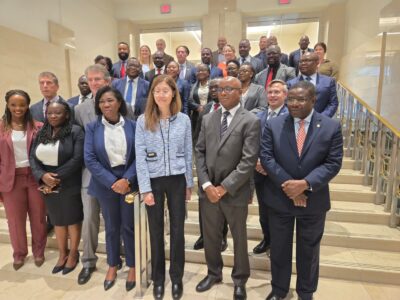The World Bank Group president, David Malpass, has expressed deep concern over Zambia’s debt which has stalled for over two years while seeking a Common Framework debt restructuring.
Malpass has, therefore, stated that the Group would do whatever it could to contribute towards a solution for Zambia and other countries such as Ethiopia and Ghana.
He said the bank was working with India and the International Monetary Fund on the G20 debt restructuring process.
He revealed this at the April 2023 Global Sovereign Debt Roundtable meeting held in Washington DC on Tuesday.
Malpass said time for meaningful debt restructuring had enabled a better understanding of the many issues that needed to be resolved for the successful debt treatment of issues facing the three countries.
“I remain deeply concerned about the stalemate in Zambia, which has been seeking a Common Framework debt restructuring for over two years. It has undertaken fiscal and economic reforms to ensure stability and foster growth.
“Restructuring options were presented to the bilateral creditors in mid-January by the Common Framework/Paris Club Secretariat, but no agreement on debt treatment has been reached,” he said.
Malpass stated that this was needed for the International Monetary Fund (IMF) to be able to complete the first review of its programme and provide disbursements for Zambia.
“Zambia’s government has taken many decisive actions that has allowed large World Bank International Development Association (IDA) support to continue. Now international creditors need to provide prompt debt relief to maintain the Common Framework,” he stated.
Also read: World Bank releases additional $100m to support Zambia’s economy
He acknowledged that to make the Common Framework process more transparent, it was important to agree on clear and early data sharing arrangements among all creditors, including the joint WBG-IMF debt sustainability analysis, and get commitment from debtors and creditors to timely debt reconciliation.
Malpass stated that to reduce uncertainty and moral hazard, there should be clarity on how the Common Framework process would support equal burden-sharing among official bilateral and private sector creditors.
“This requires agreeing on the methodology for assessing comparability of treatment and choosing a common discount rate for calculating each creditors’ reduction in net present value,” he said.
WARNING! All rights reserved. This material, and other digital content on this website, may not be reproduced, published, broadcast, rewritten or redistributed in whole or in part without prior express permission from ZAMBIA MONITOR.













Comments